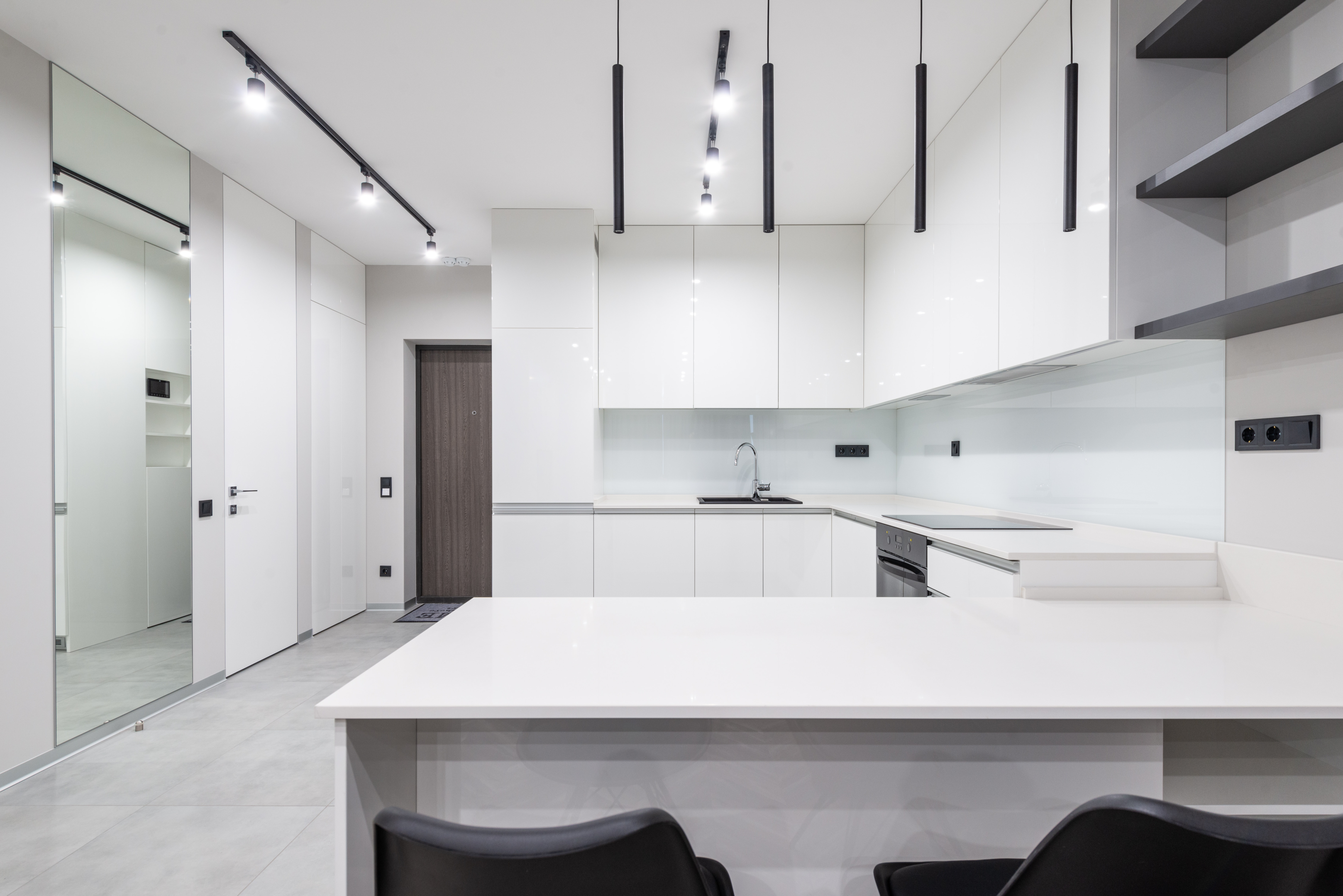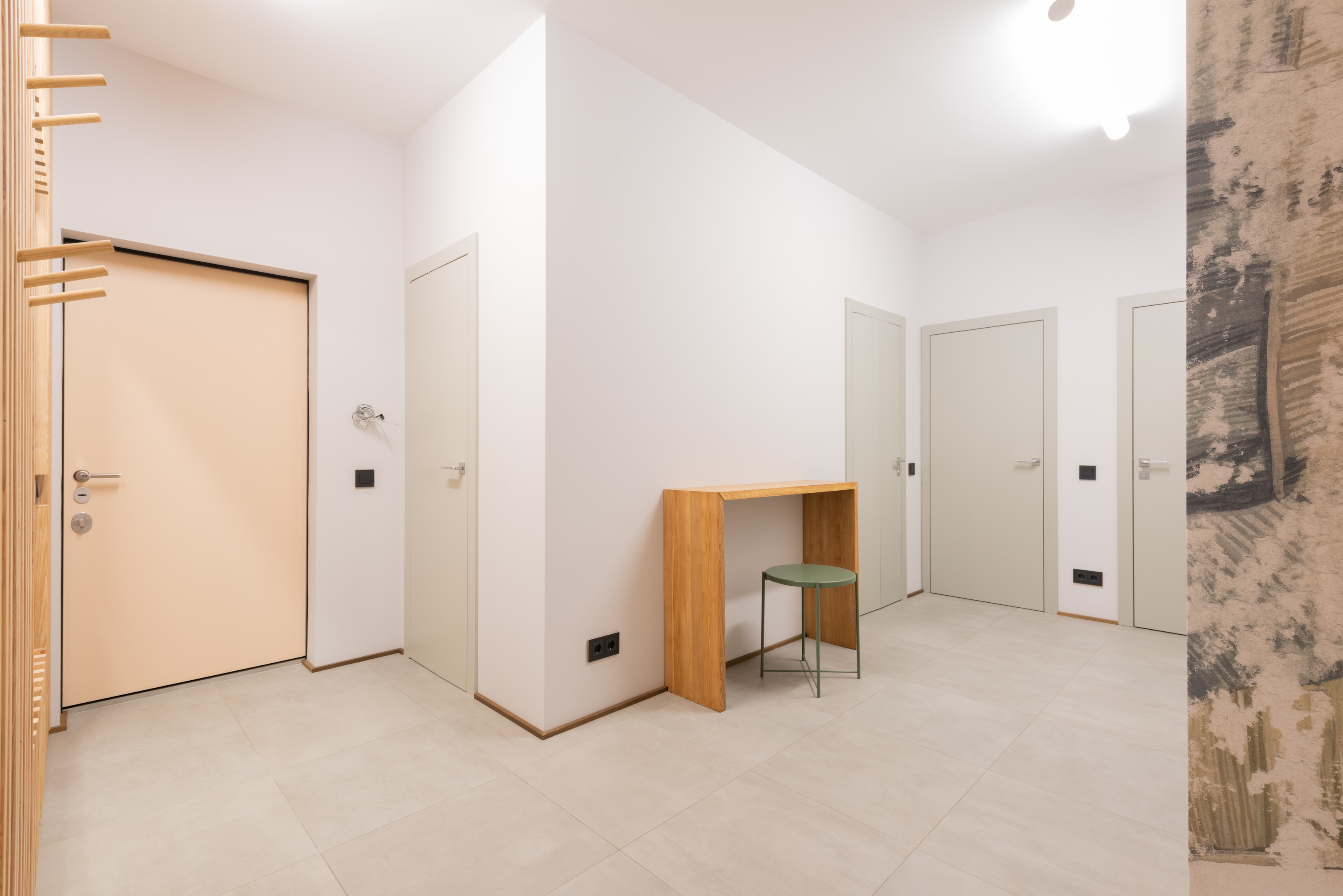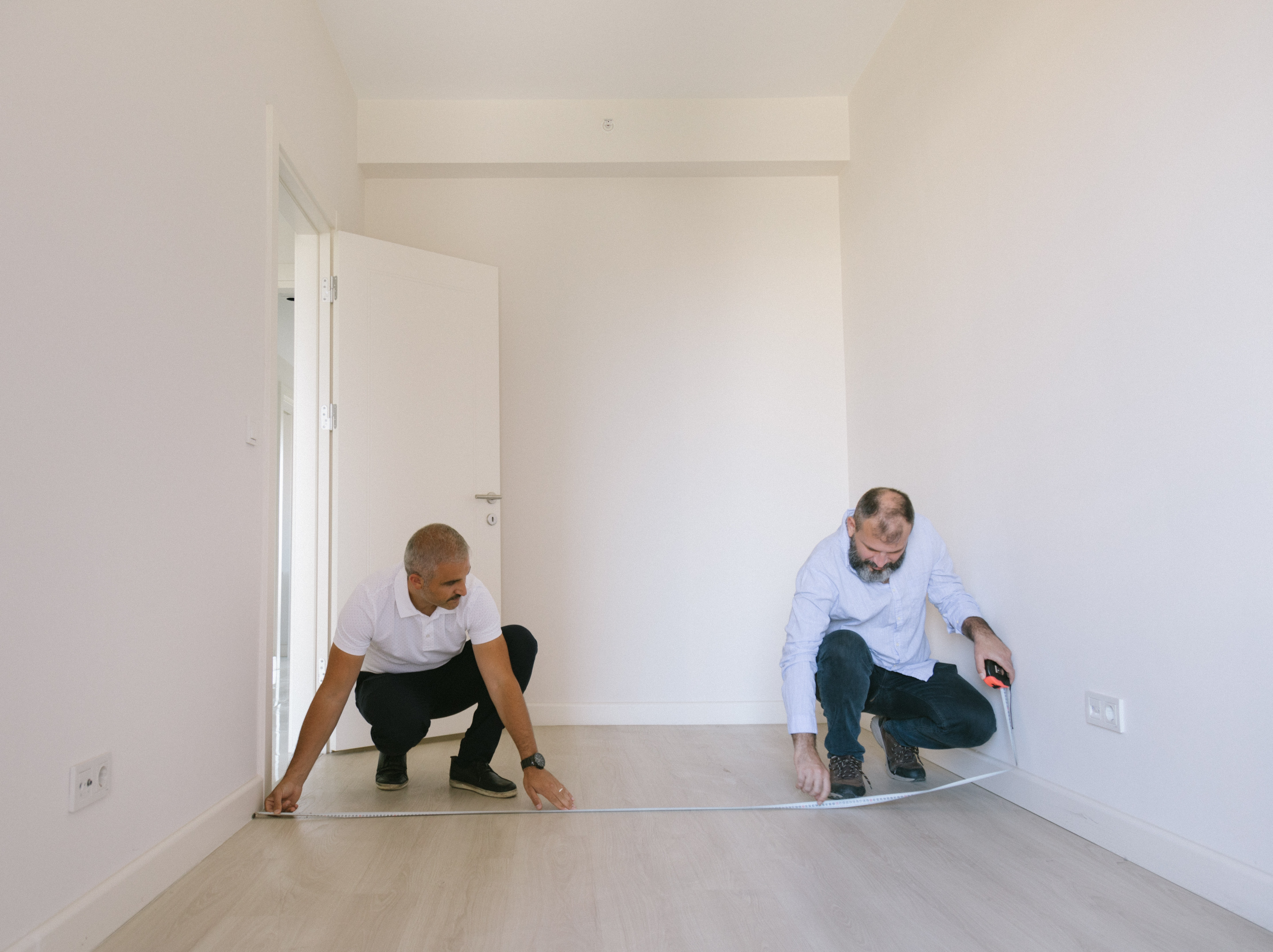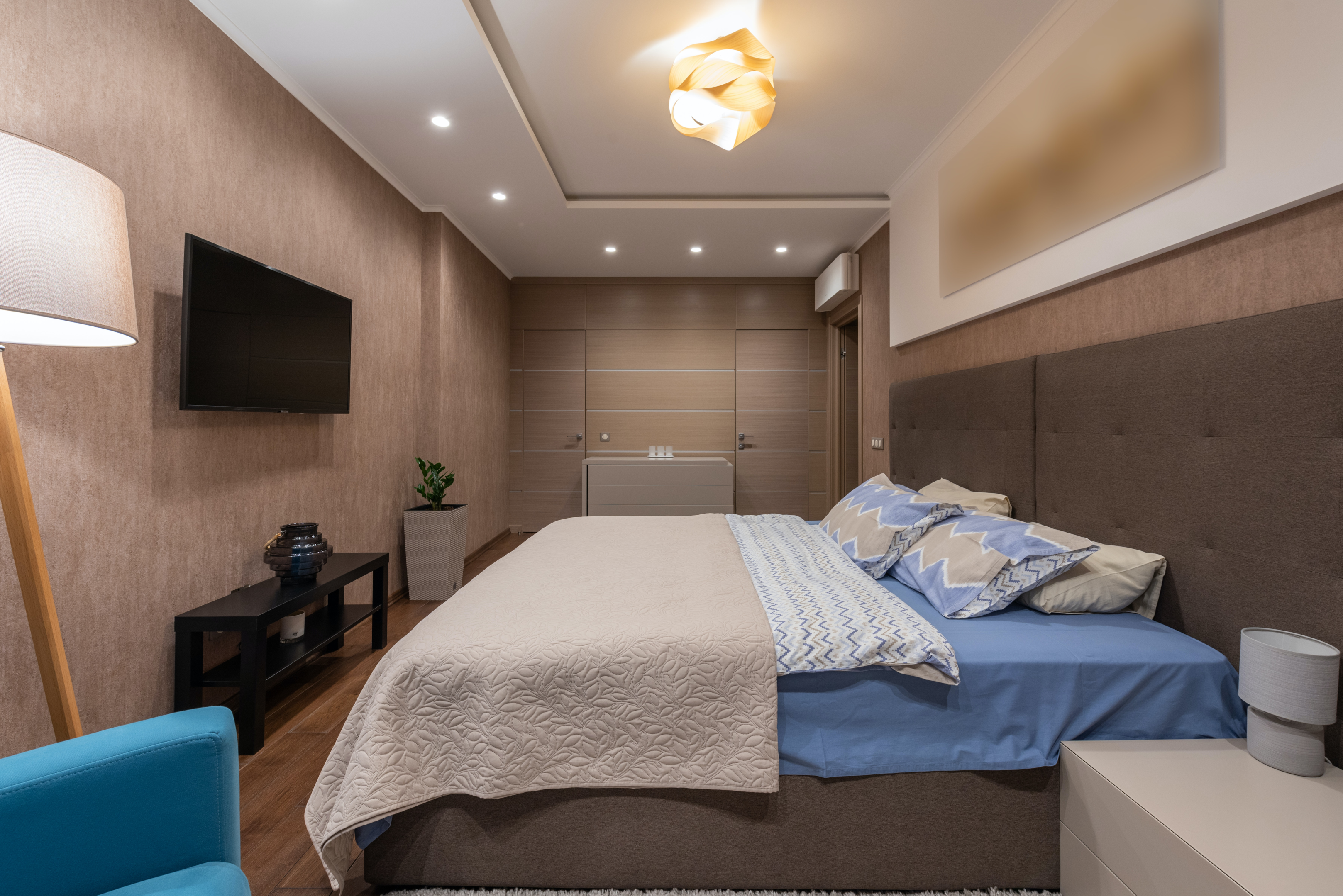Advantages & Disadvantages of Basement Apartments

Basement apartments can be a comfortable home with a bit of natural coziness. While “basement” can imply cramped, many of these units have a reasonable amount of space, coming in at 600–1,000 square feet.
Rent for a basement units are also typically cheaper than what you’ll pay for a similarly-sized above-ground unit. You could find a 600-square-foot one-bedroom, one-bathroom basement apartment in a renovated house for a few hundred or even thousands of dollars cheaper that a similar-sized rental apartment above-ground in the same area.
What is a basement apartment?
An authentic basement apartment is located at least 50% below ground level in an apartment building or multifamily home.
A typical upper-lower duplex layout can give you a good picture, where the upper unit has two stories. The main floor includes the kitchen, dining, living room and bathroom, and perhaps one bedroom, while the 2nd story has additional bedrooms.
The lower unit is a basement or cellar apartment in a typical upper-lower duplex. There’s a shared entryway on the main floor with a door to the basement, which could include two small bedrooms, an eat-in kitchen or kitchenette, a bathroom, and a living room. There’s also a small mechanical room that services the whole building.
The basement apartment typically has seven-foot ceilings and ground-level windows in the living room and both bedrooms. One bedroom will most likely have an egress window to allow for a secondary fire escape. You can also usually find one full bath with a shower, a sump pump, and a dehumidifier that keeps the apartment dry.
Utilities have separate meters for upper and lower units, however, tenants may share a garage, a common patio area, or outdoor space.
Different types of basement apartments
Here’s a rundown of the different types of basement apartments:
- Garden apartments: A garden apartment is a version of a basement apartment that is 50% above ground. It typically has its own “garden” entrance at the ground level and a small yard at the back of the building. A garden apartment is typically slightly more elevated than an apartment below street level, with more access to natural daylight.
- Daylight basement apartments: The daylight basement apartment offers one full-size window or sliding door on the ground level. This apartment, too, is partially below ground. In some areas, they’re called “English basements” and are common to row houses or low-rise apartment buildings.
- Cellar apartments: the cellar apartment is at least 50% below ground level, with windows at the ground level and the entire living space below ground level.
- Basement apartments: slightly different than a cellar apartment, a basement apartment has at least 50% of its living area above ground level, with larger windows that bring in more natural light.
Advantages of living in a basement apartment
A basement apartment can be a great opportunity to secure lower rent, a quiet neighborhood location, and more privacy than you’ll have in other types of apartments.
- Affordable: Generally, basement apartments are less expensive than comparable above-ground and garden-level apartments.
- Spacious: Basement apartments may have more living space than other apartments as mechanical systems like HVAC and plumbing, as well as laundry facilities, are housed in an area outside the living space.
- Privacy: A basement apartment is required to have a separate entrance. You’ll typically be the only one using your entrance in a single-family property.
- Dark and quiet: With only ground-level windows, basement apartments are darker because they have less natural light. This can be great if you work shift work and sleep during the day or prefer very dark conditions when you sleep.
- Easy access: Basement apartments provide easy access in and out, usually one small flight of stairs or no stairs if it’s a garden unit.

Disadvantages of living in a basement apartment
Living in a basement apartment can bring up a few issues you are less likely to contend with in upper-level units. Lack of natural daylight is one, other disadvantages include:
- More noise: Since noise insulation between the first and basement floors may be lacking, noise from your neighbors may be problematic.
- No outdoor space: Usually, a basement apartment does not come with a patio, and of course, there’s no balcony.
- Flood risk: A basement apartment could be prone to flooding, especially if you live in a region with a lot of heavy rain. Look carefully for signs of the previous flooding before you move in, and store your belongings off the floor on shelves or in plastic totes in case there’s a flood. Also, see if the unit you’re looking at is in a flood zone.
- Possible pests: Basement apartments are more likely to harbor insects, spiders, centipedes, and other household pests that gain easy access to ground-level locations.
- Cool temperatures: While a basement apartment can be a cool retreat in the summer, it may be harder to keep warm in the cold winter months.
There are a few other common issues you may encounter in a basement apartment:
- Dampness or a musty smell: With less sun exposure and less air circulation, humid conditions are more likely in a basement apartment, which could be a concern for people with asthma and allergies. A musty smell can sink into furniture, carpeting, and clothing.
- Mold: Mold can develop in damp areas that lack adequate ventilation, such as what can be found in some basement apartments.
- Radon: The presence of radon gas has been proven to increase the risk of lung cancer. An airtight basement apartment that lacks sufficient ventilation can increase the risk of radon exposure.
- Security: Basement apartments are easier to access than units on a higher level in the building, which could come with its own security concerns.

How to know if your basement apartment is up to code
No matter what type of basement apartment you’re looking at, you’ll want to be sure the apartment is up to code and in compliance with other local regulations that define structural requirements for a basement apartment.
Here are some specific regulations that apply to a legal basement apartment:
- Minimum ceiling height: The ceiling should be a minimum of 7 feet high.
- Dampproof: The walls of a basement apartment should be water- and damp-proofed. The unit should also have a sump pump to remove groundwater.
- Interior doors: Interior doors need to be at least 1.75 inches thick, with a 1/2-inch gap at the bottom of each door for air circulation. If there’s no 1/2-inch gap, the unit needs air ducts installed instead.
- Minimum room size: A bedroom must be at least 70 square feet to be legally considered a bedroom.
- A separate entrance: Your basement apartment must have its entrance to the street or yard. You must also have at least one egress window for a fire escape.
- Windows: The windows must open at least 24 inches and be at least 20 inches wide and situated no higher than 44 inches from the floor. There should be a clear area on both sides of the window of 5 square feet for ground level or below level windows.
What to do if your basement apartment is not up to code
- Provide notice to the landlord: It’s your obligation as a tenant to inform the landlord of the defect and allow your landlord to fix the problem. Your lease will specify how to contact the landlord in this situation and how much time they have to complete the repair.
- Report the problem to the local housing authority: If you have contacted your landlord but to no avail, it’s time to reach out to your local housing authority, which can impose fines or take other legal action against your landlord. If the situation is severe and potentially life-threatening, the housing authority may condemn the residence. If the conditions in your apartment are extreme enough, consult with an attorney to understand possible outcomes before taking this course of action.
- Sue your landlord: If you’ve informed your landlord, followed legal advice from your attorney, and contacted the housing authority, but your landlord still has not made necessary repairs or replacements, you may consider taking your landlord to court. This may also result in the property being condemned.
- Move: Breaking your lease and moving may be the best course of action. Consult an attorney for guidance, so you take all necessary steps to ensure the return of your security deposit.

Questions to consider before moving into a basement apartment
Whether you are a seasoned or first-time renter, here are some questions you should consider asking your landlord and yourself before moving into a basement unit.
- When was the apartment last tested for mold and radon? The landlord should have documentation showing the last time the apartment was tested.
- Are there appropriate and functional emergency exits? Do you have one main entrance and at least one egress window?
- Is bargain rent worth it? Are you prone to vitamin D deficiency or mental health conditions? Are you truly comfortable with the style of living? If you need regular sunlight or feel anxious about a basement apartment, it may be best to look for a garden or daylight-level apartment.
- Does the apartment feature your preferred amenities and utilities? Not all basement apartments have a common area or space for entertaining. You may also have electric heat instead of forced air; if you prefer one over the other, you’ll want to keep looking.
- What’s the layout and number of bedrooms? Be sure if you’re looking at basement apartments that they have the number of rooms you want and living space before moving in.
- What’s the square footage? Basement apartments come in all sizes, from 400 square feet and above. Keep in mind the space will affect your comfort level and perceived livability.
- How’s the location? Depending on the location, you may be willing to live in a basement apartment if you’re living your dream neighborhood.
How to live safely and comfortably in a basement apartment
You can live safely and comfortably in a basement apartment by taking the proper precautions, including possibly paying for an inspection.
- Be sure the apartment is up to code: Ask to see a certificate of occupancy that allows the landlord to rent out the basement unit.
- Test for mold and radon: Many people are sensitive to mold, which can cause many health concerns. Ask your landlord if they’ve recently tested or willing pay for a test.
- Check security: Be sure the windows and entrances lock securely and, if necessary, ask for a protective window grate or separate locks to be installed.
- Evaluate flood risk and prevention measures: The sump pump should be fully operational, and there should be good waterproofing on the foundation walls to keep water from coming into the apartment.
- Is there a means to eliminate excess moisture?: A dehumidifier and air purifier can help to keep the air clean and breathable.
- Ensure the apartment is free of pests: Ask the landlord what pest controls they have put in place. Do they spray the exterior regularly?.
- Optimize lighting: Use lamps for any room that doesn’t have adequate lighting.
- Optimize space and use color to enhance it: Bring in the appropriate color to maximize the space. White, light gray, light yellow, and light blue can keep the unit feeling bright and cheery.
- Choose light-colored decor: Stick to light colors for decor and furnishings. Bold, dark colors will make the space seem smaller.
- Space-saving furniture: You can also use space-saving furniture like a futon or fold-down table to save space but allow for other options if you have guests over. Find creative ideas to organize and maximize the room you have.
- Ask the landlord about renovations: A landlord may be more willing to renovate or improve a basement unit, especially if changes will improve tenant safety. For example, installing larger windows will ensure the unit meets egress requirements, with a bonus that tenants will appreciate improved lighting.
- Know how to write a basement address: Mail for a basement apartment is written differently than how you’d write an apartment address. For example, you’d write a basement apartment address similar to this made-up address below.
Jane Bennet
100 Elm Street BSMT
Pittsburgh, PA 15212
The bottom line on basement apartments is that they can provide renters with a more affordable housing option. In an expensive rental market, such apartments have become increasingly popular, making it harder to find one that’s available. If you want to live in a basement apartment, know that they fill quickly, so be prepared to act if you find one.
Redfin does not provide legal, financial, or tax advice. This article is for informational purposes only, and is not a substitute for professional advice from a licensed attorney, financial advisor, or tax professional.